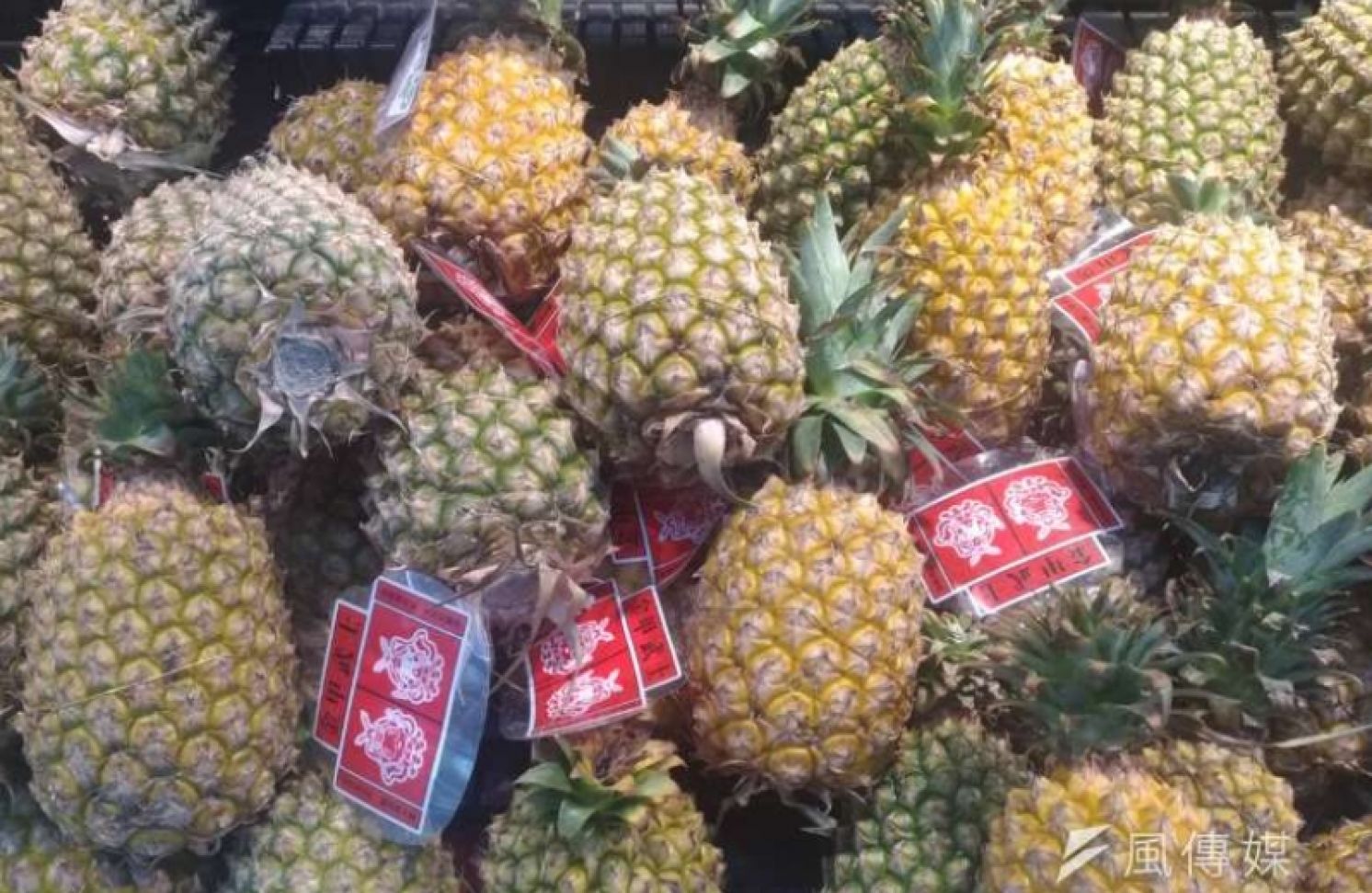
With China's Frequent Moves, Clouds of Trade War Gather
United Daily News, April 13, 2023
As China’s military drills around Taiwan have just come to an end, the mainland’s Ministry of Commerce immediately announced an investigation into trade barriers affecting more than 2,000 Taiwanese products, including agricultural, industrial, and textile goods. The looming clouds of a trade war precipitate before the smell of gunpowder from military activities in the Taiwan Strait has dissipated.
Mainland China’s move may be analyzed from such aspects as timing, content, procedures, and subsequent actions. First, in terms of timing, Taiwan has practiced bans on certain mainland Chinese agricultural and industrial products for at least a decade, even before the signing of the Economic Cooperation Framework Agreement (ECFA) between the two sides in 2010. Why has the mainland not launched a trade investigation until now?
Undeniably, it is closely linked to the current sour cross-strait relations and the U.S.-China-Taiwan trilateral interaction. Beijing believes that the administration of President Tsai Ing-wen has been attempting to solicit U.S. support to seek independence, and the United States is counter-balancing China with the so called “Taiwan question.” Therefore, the Ministry of Commerce chose to announce the investigation on the day when the ruling Democratic Progressive Party (DPP) officially confirmed Vice President Lai Ching-te as its candidate for the 2024 presidential election. The investigation will last for up to nine months, which means it will end no later than January 12 of next year (right before Taiwan’s presidential election on January 13), indicating that mainland China intends to conclude the investigation during the Tsai administration, and the targeted nature of the investigation is self-evident.
Second, mainland China believes that its position is justifiable, especially since Taiwan prohibits the import of more than 1,000 industrial products from the mainland while keeping its own market open to the world, raising concerns that Taiwan's ban on mainland Chinese products may violate World Trade Organization (WTO) regulations. In fact, the import of mainland Chinese agricultural products have been banned in Taiwan for many years. The mainland constantly raised this issue during the negotiation of the ECFA between the two sides and proposed that Taiwan lift the ban and import mainland Chinese agricultural products, such as apples, which are not produced in Taiwan. Nevertheless, Taiwan’s government rejected the proposal due to its policy of protecting the interest of farmers. On the other hand, mainland China was eager to reach an agreement at the time and accepted Taiwan’s position.
Third, if we look into the administrative procedure for the trade barrier case, the Chinese side insisted that the investigation originated from several Chinese import-export chambers of commerce submitting investigation applications to the Ministry of Commerce. Although the Ministry launched the investigation in accordance with mainland Chinese laws and regulations, it has not yet brought it before international organizations such as the WTO, implying that the investigation is still in the internal investigation stage.
Finally, the critical part to this case lies in the possible actions that mainland China may take after the investigation is completed. There are several possibilities: The first is that mainland China could initiate negotiations with Taiwan, which can only be coordinated and conducted by the authorities of both sides. However, the likelihood of negotiations between the two governments is extremely low, given the stalemate of cross-strait relations. The second possibility is that mainland China could submit the investigation results to the WTO for arbitration. In fact, the mainland has rarely submitted trade disputes involving Taiwan to the WTO platform in the past, as it seeks to avoid internationalizing trade disputes between the two sides. Therefore, the possibility of China bringing the case to the WTO is also relatively low. The third possible option for mainland China is to implement retaliatory measures against Taiwan by restricting imports of Taiwanese products. Accordingly, it is widely speculated that it serves as a prelude to the next round of cross-strait trade wars. As soon as the mainland demands "reciprocal retaliation," the impact will be unprecedented and result in much larger damages than all previous individual bans on Taiwanese products.
Perhaps we could predict that the investigation by the mainland’s Ministry of Commerce may extend until the eve of Taiwan's presidential election next year. It gives Beijing an additional option in its toolkit for retaliating against Taiwan. If Beijing decides to take countermeasures against Taiwan’s products, then many agricultural and industrial enterprises in Taiwan may be impacted, and it will have a high cost on Taiwan's economy and the livelihood of its people.
Is it necessary to cause damage to the other side's economy and livelihood in cross-strait rivalry? Will mainland China's approaches really achieve its goal of pressuring Taiwan? It is worth continued observation. After the pandemic, Beijing has repeatedly declared that it will promote the normalization of cross-strait economic and trade exchanges. Therefore, many business groups from Taiwan have frequented the mainland in recent months and many others are on the way. Launching a trade barrier investigation against Taiwan’s products will inevitably be a negative factor for future interactions, which is detrimental to the integration of the economy and society of both sides. Is this something Beijing would welcome?